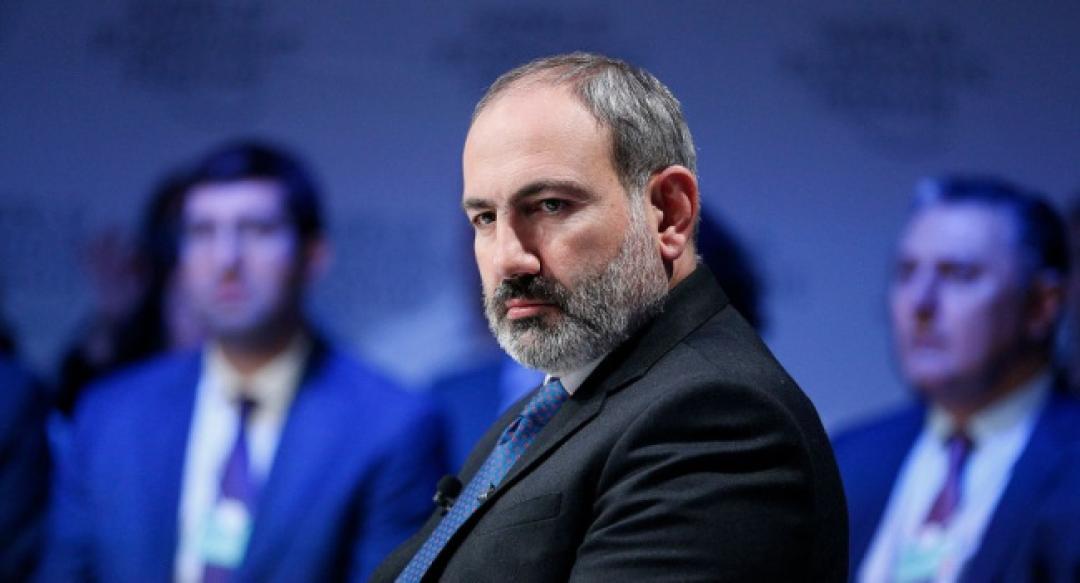
FIFA World Cup, at least 5 Million Population and Nagorno-Karabakh as Part of Armenia: Pashinyan presents long-term Goals of his Government

On 5 August the Armenian Prime Minister Nikol Pashinyan called for concentration of the “pan-Armenian potential” for the realization of long-term strategic goals of the nation as he addressed thousands of people in the central square of the Nagorno-Karabakh capital of Stepanakert/Khankendi, reported the Armenian Radio Free Europe.
According to this vision, in the next three decades Armenia’s population should grow from the current 3 million to at least 5 million people. To recap, Armenia’s population is expected to shrink by 913,000 to 2,039,000 by 2100, the United Nations Organization says in its latest demographic report. The organization’s analysts consider two scenarios – pessimistic and optimistic. According to the pessimistic forecast, Armenia’s population may decline below two million to just 1,207,000 (down by 1,745,000), while optimistic forecast doesn’t rule out that the population may grow by 224,000 to 3,175,000.
“Our goal is to create 1.5 million jobs, provide employment for 2.5 million, stamp out poverty and turn Armenia into an industrial country,” Pashinyan stressed. In the indicated period Pashinyan sees Armenia’s gross domestic product increasing 15 times, average salaries rising seven times, and funding for medicine, education and science growing 20 times. “Our goal is to have at least five Armenian technological companies whose values will be over $10 billion and 10,000 working startups,” he said. “By the index of combat readiness our army should be at least among the world’s top 20 armies and we should have one of the world’s top ten most efficient intelligence services,” he added.
According to Pashinyan’s vision, by 2050 Armenia will become a country that annually attracts 15 million tourists and excels in sports. “We will strive to make Armenia’s national soccer team a medal winner at a European or world championship, gain 25 Olympic gold medals and get an individual world champion in chess,” he said.
“I am convinced that many of you wonder why I am saying nothing about Karabakh. The answer is very simple: Karabakh is Armenia, and that’s it,” Pashinyan said.
Economist Bagrat Asatrian describes the long-term strategic goals outlined by Armenian Prime Minister Nikol Pashinian on August 6 as ‘fantastic’, stressing that much higher growth rates are needed to fulfill them. Asatrian assessed the current rate of growth as positive, but still insufficient. “We have semi-annual results of [economic activity] at 6.5 percent, which can be said to be a good rate, especially given the qualitative shifts. But at this rate of growth we will at best quadruple our GDP in 30 years. In other words, we need to grow three to four times faster to achieve that result,” said Asatrian.
Pashinyan’s statement faced negative reactions from the officials in Baku. “Armenia at the prime minister’s level insults and crushes international norms and principles, the UN Charter, the Helsinki Final Act and completely destroys the negotiation process on the settlement of the Nagorno-Karabakh conflict, being conducted through the mediation of the OSCE Minsk Group co-chairs. Afterwards, the co-chairs of the OSCE Minsk Group must answer the question regarding the future negotiation process. We would like to assure the Armenian leadership that the attempts of adding the occupied Azerbaijani territories to Armenia are only a fantasy and these attempts are as utopian as the goals for Armenia’s development until 2050. By this destructive and provocative statement, the Armenian side again puts the region face to face with danger and risk and deliberately escalates the situation to distract attention from internal problems,” said the Head of the Department of Foreign Policy Affairs of the Azerbaijani Presidential Administration Hikmet Hajiyev, as reported by Trend.
See Also


Mirzoyan Meets US Deputy Assistant Secretary Joshua Huck

Azerbaijani President Holds Talks with UAE and German Business Delegations on Economic Cooperation

Grigoryan Confirms Armenia’s Readiness to Dissolve OSCE Minsk Group Upon Peace Treaty Signing

Azerbaijani Official Warns of Ecological Risks to Caspian Sea, Similar to Lake Urmia and Aral Sea

